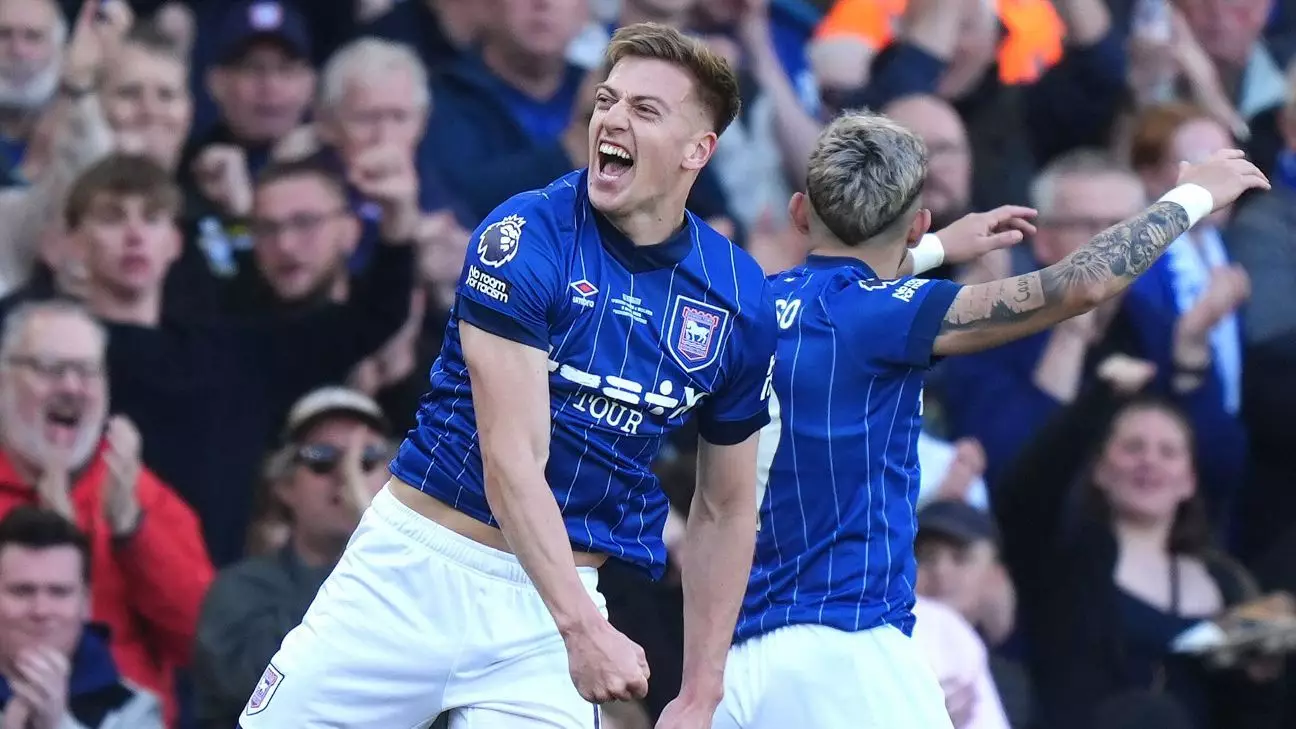Ipswich Town’s promising striker, Liam Delap, finds himself at a pivotal crossroad in his fledgling career. At just 22 years old, the former Manchester City forward is weighing options among four Premier League clubs, notably including heavyweights like Chelsea, Newcastle United, and Everton. The Daily Mail reports that Manchester United has already framed a deal for him, leaving Delap in a position that could redefine his trajectory in the football world. What makes this decision profoundly critical is the existing relegation release clause in his contract, pegging his market value at £30 million. This not only signals the financial stakes involved but also underlines how the dynamics of the Premier League can offer both opportunities and pitfalls for young talent.
Delap’s ultimate choice will depend on various factors: the potential for playing time at the selected club, compatibility with coaching styles, and the prospect of developing into a key player. However, if Delap opts for Chelsea or Newcastle—two clubs with relatively stable ambitions and deeper squad depth—he may find himself grappling with the challenges of limited playing minutes. In contrast, moving to Everton could present a more immediate opportunity to secure a starting role, albeit amidst a club that may be navigating more uncertainty in terms of performance.
Chelsea’s Dual Strategy: Targeting Ekitike and Reconstructing the Frontline
While Delap’s future is shrouded in uncertainty, Chelsea is concurrently exploring other striking options, notably Eintracht Frankfurt’s talented forward, Hugo Ekitike. According to the Independent, Chelsea’s interest in Ekitike aligns with their overarching strategy of fortifying their attack—a sector that has faced scrutiny recently due to inefficiencies in goal-scoring. Ekitike’s impressive stats—22 goals and 11 assists across 47 matches—paint a picture of a player who knows how to find the net and create opportunities.
However, the Blues face a financial hurdle, as Frankfurt is expected to demand around €100 million for Ekitike. This raises the question of sustainability in the current transfer market, where escalating valuations can push clubs to reevaluate their priorities. If Chelsea can facilitate a lower asking price, acquiring Ekitike might offer them a dynamic and youthful option in attack. The decision to chase Delap alongside Ekitike underscores the club’s dual approach: securing young talent with future potential while also seeking immediate impact players.
Manchester United’s Squad Overhaul: A New Dawn Ahead?
Manchester United, too, is undergoing a transition that seems imminent. The Telegraph’s reports suggest a significant reduction in squad size, highlighting that established players like Casemiro and Alejandro Garnacho could be on the chopping block. This drastic shift reveals a fundamental desire from the United board to revitalize the squad and align it more closely with manager Erik ten Hag’s vision.
This reconfiguration brings Garnacho’s situation into focus. Despite being a young player brimming with potential, the club’s willingness to let go of a promising prospect raises eyebrows. If Garnacho’s representatives manage to strike a favorable deal, United may be forced into a deeper rebuild than initially anticipated. United’s intent to redefine their ethos—favoring youth and merit over reputation—suggests that we could see a significantly transformed squad come next season.
International Interests: European Clubs Eyeing Premier League Talent
As the transfer window heats up, attention turns to players seeking new horizons. Al Ahli’s Gabri Veiga is reported to be nearing a move to FC Porto for €15 million, indicating the ongoing trend of young talent migrating from one league to another. While Veiga was once linked with the likes of Manchester City and Liverpool, the landscape of opportunities varies significantly depending on how clubs shape their roster.
Not only does this reveal the fluid nature of player movements, but it also underscores the financial realities clubs must navigate. As teams pivot strategies and dismantle existing frameworks, the future landscape of European football may see a shift in power could empower emerging clubs in leagues outside the top five European leagues to capture promising talent.
As the January transfer window approaches, the decisions made by players like Delap, clubs like Chelsea, and the shifts happening at Manchester United and beyond not only have immediate implications but also define the broader narrative of club strategies across football. Each decision resonates beyond just the players involved, shaping the identity and ambition of clubs as they endeavor to thrive in a highly competitive environment.

